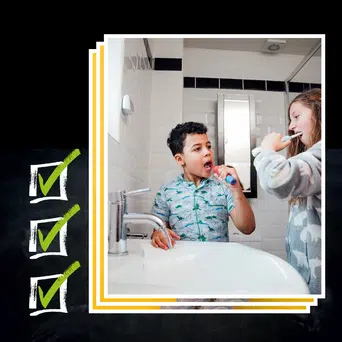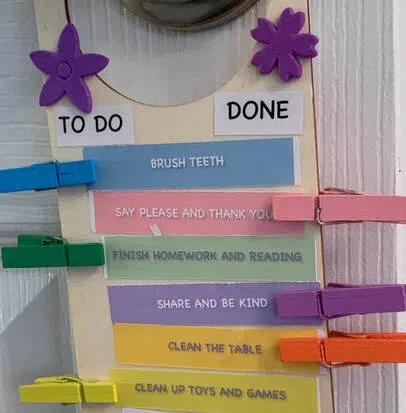
How to Help Your Child Who is Struggling With Executive Function Skills?
presmult | 05 Sep 2023
Parenting is hard. Parenting a kid who struggles with executive function skills is very hard. Living as an individual lacking executive function skills is no picnic either. You might be thinking: this phrase executive function skills is all abuzz lately, but what the heck are they anyway? Let’s break it down.
What are Executive Function Skills?
“Executive Function Skills” is an umbrella term that covers various cognitive processes, including organizational skills, working memory, task completion, and emotion regulation.
A child who is struggling with executive function might have trouble controlling emotions or make impulsive decisions. He might have trouble following multi-step directions, listening, or paying attention. You may hear from his teacher and see at home that he has trouble organizing himself to start an assignment or task, much less complete it.
If your child has EF struggles, school mornings can often feel like a disaster. Are you having to question your child: Do you have your homework constantly? Your lunch? Your instrument? Your backpack? And then still receive a phone call from him at school, having forgotten something? Then, of course, the famous internal struggle follows – do you bring it or let them “learn the lesson the hard way”?
Do you find that when you give your child two-step directions: brush your teeth and get dressed, for example, you’ll find them 15 minutes later with one sock on, staring aimlessly into their closet, thinking about what is happening after school?
How can you help your child?

There are some easy (and fun!) ways for parents to help their children strengthen their working memory. A few examples:
- Card games like Crazy Eights, Uno, Go Fish, and War.
- Strategy games like crossword puzzles, Sodoku, Jigsaw Puzzles, Concentration, Chess, and Memory. Remembering the rules of the games can be challenging for kids with EF issues and great practice for them.
- Repetition/fluency of math facts and letter/sound recognition for younger kids using flashcards or apps like Quizlet.
- Mnemonic Devices, like the Method of Loci, can be made a fun game at home – have the child look around a room and memorize what objects are present, close her eyes and recall what she saw.
Parents can help children who struggle with emotion regulation and impulsivity in a variety of ways:
- Do an emotion vocabulary study with your child where they label their emotions.
- Emotion reflection cards ask a child to recall an extreme emotion, label it, and reflect on their response. And yes, Amazon sells them here: Mood-Cards.
- Emoji Cue Cards are a fun and easy way to help younger students assign their feelings about school, academics, chores, and tasks at home.
- Model positive emotion regulation to your child during role-play scenarios or in daily life situations – children mostly learn this skill from observing how we react, anyway!
- Set intentions – and write them down – to create clear goals to accomplish during the day.
- Practice mindfulness and meditation activities using apps like Calm or Headspace.
Organizational skills are key for any child struggling with executive functions. A few ideas:
- Keep a large desk calendar and desk organizers to help older children.
- Post a daily schedule in your home on a large dry-erase board.
- Have clear and consistent routines and procedures that offer structure in place as often as possible. They will not only help your child but make things much easier for you!
- Homework charts or planners from school with columns showing subject, task, and materials can be manipulated to add “materials packed in a backpack” and “materials turned in.”
- Put backpacks in the same place – by the front door – every night, packed and ready to go. You will be thankful for this in the morning!
Task Completion is another area of struggle for kids with EF trouble.
- Have your older child create a checklist for a homework routine (look at the planner, gather materials needed, break the assignments into smaller pieces, etc.). You can either have the checklist on a large dry-erase board in the area where your child does homework or simply type, print, and have it laminated. Give it to your child at the beginning of daily homework time to ensure that routines are smooth and consistent.
- Timers are very helpful for children to foster their time management skills. Consider setting a timer for short breaks between tasks to keep them focused and motivated (think: work for 20 minutes, break for 5).
- Velcro Task Calendars are helpful with younger children. You can also get crafty and create a door hanger that has tasks to complete with clips that move from one side to the next when the task is completed.
Should you call in a professional?
If you’re finding these strategies are not making the cut in affecting real change, you may need Executive Function Coaching to help your child get organized. Take a look at this helpful list of observations and concerns of children who may lack executive function skills by the National Center for Learning Disabilities to help decide whether or not you should call in a professional:
In the past six months, my child has…
- had difficulty paying attention
- been easily distracted
- required many reminders to stay on task
- had difficulty setting goals
- struggled with making decisions
- had trouble identifying where to start on assignments
- focused on either details or the big picture at the expense of the other
- had difficulty getting started on tasks, often seemed to procrastinate
- struggled to comprehend how much time a project would take to complete
- taken longer than peers to complete homework and other tasks
- needed numerous prompts from adults to stay on task
- lost track of time or assignment due dates
- forgotten to turn in completed work
- struggled with keeping track of needed materials; often leaves materials at home or school
- found checking his/her work very difficult (and may not do it at all)
- had trouble following multiple-step directions
- forgotten what he/she is saying or doing in the middle of a task
- forgotten the details of a text while reading or soon after finishing
- gotten frustrated with changes in schedule or usual routines
- had difficulty shifting from one activity to another (especially when the rules/task demands change)
- struggled with shifting between literal vs. figurative information, past vs. present, etc.
- gotten stuck on parts of tasks and can’t move forward
- had difficulty controlling impulses—will say or do things without thinking about them first
- been easily frustrated
- often spoken out of turn and/or interrupted others’ conversations
If you’ve checked several of these boxes and your at home strategies aren’t enough, then it’s time to call a professional.
WhizKidz Tutoring can help

All WhizKidz EF coaches implement the following:
- Homework charts AND study skills priority charts to keep track of assignments and exams and manage multi-subjects.
- Minimize clutter and create clearly defined areas in the workspace at home.
- Set up weekly schedules with daily and weekly goals.
- Scaffold learning to move students towards strong understanding with temporary support.
- Practice and implement repetition of facts.
- Conference with students.
- Seek to understand the accommodations and modifications given to students with 504s and IEPs AND teach students to self-monitor progress goals for their IEPs.
- Help students manage emotions and impulsivity. Mindfulness and meditation activities are often part of sessions.
- Success through the productive struggle where the students “fail” under a controlled setting, allowing them to practice regulating their emotions. Coaches also model positive emotion regulation to the student during role-plays or modelling.
- Check-ins! Coaches check in with students (or parents for younger clients) via text and email during the week. They will also help set up phone reminders or calendar apps for older students.
WhizKidz EF Coaches & Math
- Coaches centre around giving students concrete anchoring in manipulatives before stretching them to abstract thought. When they move into abstract thought, they can rely on concrete examples or the visual image of the concrete example in their minds.
- When students perform operations with decimals, coaches have them use graph paper to help them align numbers.
- They use patty paper to teach transformations.
- Coaches create foldables for notes. Students will take more ownership of their notes and use them more than simply writing in a notebook.
WhizKidz EF Coaches & ELA
- Coaches help with the entire writing process, from prewriting to drafting, revising, and editing. Many of our EF Coaches specialising in writing are one or more of the following: Windward/PAF trained, Orton Gillingham and/or Wilson’s trained or certified literacy specialists with training and practice in The Writing Revolution and Teacher’s College Reading & Writing Project.
- Coaches use clear prompts and methods to help students keep organized.
- Writing is broken down into pieces. (i.e. writing topic sentences and practising repeatedly)
- Coaches use sentence frames, continually scaffolding until the student can write the full sentence without prompting.
- Coaches use graphic organizers, break down writing into small chunks, use sentence starters, reminders, conferences, and modeling.
Parenting children who lack executive function skills can be tough. It can cause anxiety, stress, and fighting. However, with a properly laid out plan and clear goals and expectations, parents can help their children with tried and true strategies like the ones listed above that professionals use to help kids.
And, if you’re finding those aren’t enough, you can contact us for professional tutoring. We can work one-on-one with your child – and you! – to help them manage life and school in a productive, confidence-boosting, fun way.

